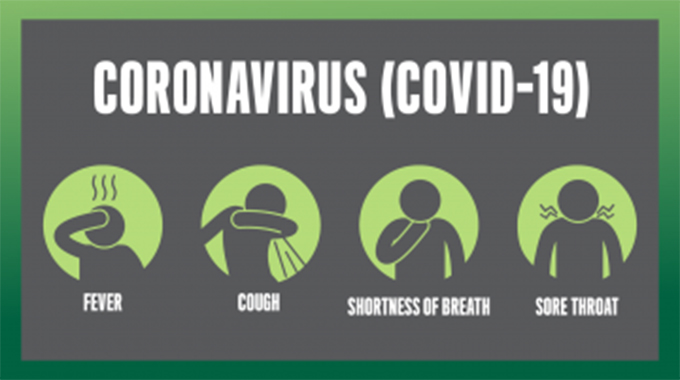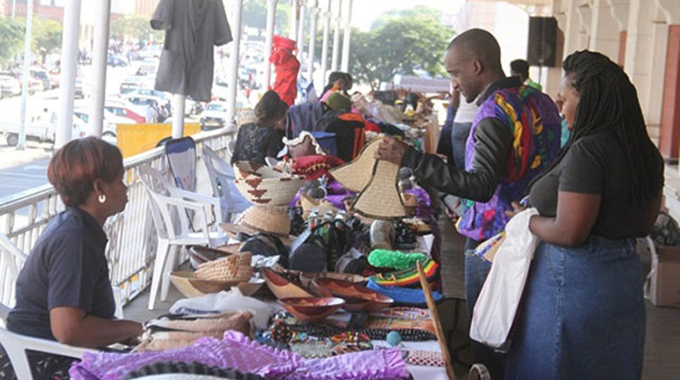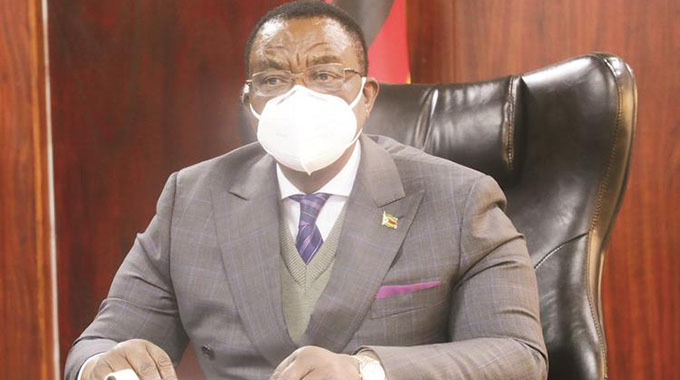COVID-19 exploits pre-existing inequalities, drastically impacts women’s livelihoods

Roselyne Sachiti Features, Health and Society Editor
In downtown Harare, Millicent Murwira (33) sells an assortment of vegetables at the corner of Park Street and Nelson Mandela Avenue.
All too aware that she is breaking lockdown restrictions by illegally selling vegetables from a pavement, Murwira tries to attend to a customer and at the same time look out for municipal police, who can at any time pounce on her.
“If they catch me, I will be arrested and my stock will be impounded,” she told The Herald.
A mother of three children aged 13, 11 and 6, the young mother has no other means of production and vending brings her only income.
“If I do not sell anything, my kids will go hungry. Every morning I go to Mbare Musika and buy vegetables at wholesale prices. I resell them in the central business district for a small profit,” she further reveals.
On the pavement are carrots, tomatoes, cucumbers, green leafy vegetables and butternuts. A heap of carrots costs ZW$10. In a day she will make up to ZW$500 if she sells all her stock.
She said Covid-19 has had a negative impact on her livelihood and the past three months have been a tough ride.
“I am still trying to recover. During the total lockdown, life was really tough. I lost my income. At least now I can sell.”
Several other women are littered on the streets also illegally selling vegetables in breach of lockdown restrictions.
“We hope the disease goes away soon. I hope they find a cure soon so that our lives can go back to normal. I want my kids to go back to school when they finally reopen. When I sell these vegetables, I will buy food and also start buying school supplies,” she said.
Her worry comes as philanthropist Melinda Gates launched a paper which explores how COVID-19 pandemic has exploited pre-existing inequalities and drastically impacted women’s lives and livelihoods.
In the paper, titled “The Pandemic’s Toll on Women and Girls,” Melinda makes the case that to recover fully from this pandemic, leaders must respond to the ways that it is affecting men and women differently.
She puts forward a set of specific, practical policy recommendations that governments should consider in their pandemic response—to improve health systems for women and girls, design more inclusive economic policies, gather better data, and prioritize women’s leadership.
Writing in the paper, Melinda describes how previous disease outbreaks, including AIDS and Ebola, tend to exploit existing forces of inequality, particularly around gender, systemic racism, and poverty. The broader impacts of this crisis are having a disproportionate impact on women and girls.
In Africa, for example, women account for around 40 percent of COVID-19 cases. However, African women and girls are disproportionately affected by reduced access to health care services and are at greater risk of gender-based violence.
Women make up the majority of workers in the informal sector, which leaves them at greater risk of losing their income.
Describing the impact of stretched health systems on maternal care, the paper notes that in low- and middle-income countries, cutbacks could claim the lives of up to 113,000 women.
“We know from the past that this threat is real. During the 2014 Ebola epidemic in Sierra Leone, the number of mothers and babies who died during or after childbirth was higher than the number of deaths from the Ebola virus.
“That is what epidemics do: they not only overwhelm immune systems; they also overwhelm health systems,” Melinda writes in the paper. “And because the parts of those systems devoted to caring for women are often the most fragile and underfunded, they collapse first and fastest.”
The paper calls for leaders to ensure that women and girls are not left behind in the world’s response to COVID-19.
It urges policymakers to recognize the opportunity to replace old systems with new and better ones, outlining practical recommendations around health, economics, and decision-making that could help build a more equal and prosperous future.
Recommendations include making maternal and reproductive healthcare an essential service, protecting the contraceptive supply chain, and using the pandemic as an opportunity to integrate women’s healthcare. The paper also highlights the importance of designing emergency economic relief programs that reach women who need them the most and ensuring women’s voices are included at all levels of decision-making in the response to this crisis.







Comments